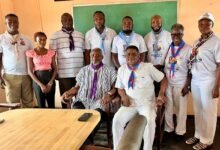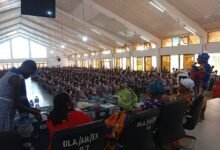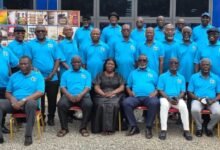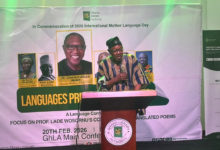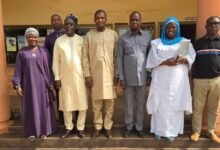Journalists receive training in water, sanitation, hygiene reportage

More than 25 national delegates of the Ghana WASH Journalists Network (GWJN) have been trained on the need to demand from duty bearers’ actions to accelerate WASH services in Ghana.
The training, funded by Roddenberry Foundation’s + 1 Global Fund was under the theme, “Building a Strong Media Coalition for Effective Wash Advocacy.”.
It forms part of the effort to build the capacities of members to report on water, sanitation and hygiene issues in communities across the country.
Participants were selected from Ashanti, Bono, Northern, Western, Volta, Upper East and Greater Accra regions, and had representatives from the Ministry of Sanitation and Water Resources and a consultant in the WASH sector.
Topics treated included “Ghana’s sanitation situation: Pointers by the 2021 PHC and JMP reports, Overview of the Water Sanitation and Hygiene sector in Ghana, progress, gaps and way forward, the role of media in Ghana’s WASH SDGs agenda.
Mr Ibrahim Musah, WASH Policy Specialist and Technical Lead for GWJN, called on the media practitioners to show more interest in issues of WASH.
According to him, even though much has been achieved in the area of the provision of water, the same could not be said about sanitation and hygiene.
According to Mr Musah, one area which needed regimental effort and dedication by WASH journalists was sanitation, which Ghana was doing badly on, considering the 2021 PHC Report.
For instance, the 2021 PHC stated that a whopping 1,477,747 households in Ghana lacked household toilets with households without toilets in the rural areas standing at 31.3 per cent and 8.9 per cent for urban areas bringing the national total to only 17.7 per cent.
The PHC also put the national figure for open defecation at 17.7 per cent with regional and district variations. The GSS concluded that the levels of open defecation dropped only marginally in two decades.
Mr Musah underscored the need for media practitioners, especially WASH journalists, to write compelling stories on WASH Neglected Tropical Diseases (NTDs).
Mr Edmund Smith Asante, Regional Page Editor of Daily Graphic, challenged the media to intensify reportage on WASH activities.
He explained that issues relating to water and sanitation have continuously come to the fore for governments and other bodies to help address and provide the needed facilities for communities.
Mr Musah urged the practitioners to explore WASH facilities to enable duty bearers come to the aid of households and the community at large.
The National Coordinator of GWJN, Mr Justice Lee Adoboe, said the network “plays an advocacy role between end users in the WASH space and to engage also policy and decision makers to ensure sustainable access to safe water and improved sanitation as well as hygiene.”
Mr Adoboe said “issues relating to WASH activities must continuously be highlighted to enable the country work on the gaps and challenges to ensure that the said WASH SDGs targets are achieved in a sustainable manner.”
BY BENEDICTA GYIMAAH FOLLEY



